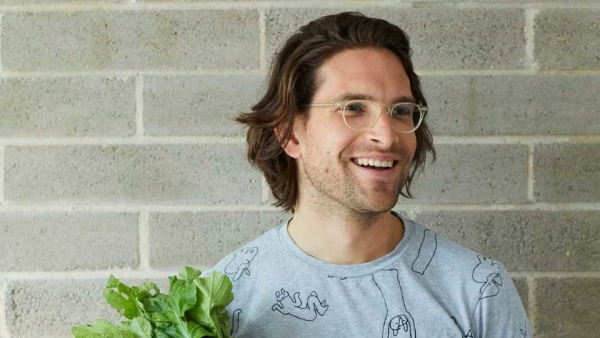Bowel cancer prevention: Why fibre should be on your shopping list
The real hero of gut health has been hiding in plain sight


From kombucha to sauerkraut, gut health is all the rage – and for good reason. Increasingly linked to a range of healthier outcomes, new products are entering the market each week aimed at tweaking or balancing the billions of bugs living in your bowels. While the growing fascination and evidence might see strange potions on your supermarket shelves, the real hero of gut health has actually been hiding in plain sight all along!
What are the benefits of fibre?
Far removed from the world of food fads and diet trends, fibre has been with us since day one. It’s the roughage and the crunch in our fresh fruits, vegetables and seeds. Different to probiotics which add additional bacteria to your digestive system, fibre fuels the growth and diversity of your very own microbiome, now thought to be linked to a range of beneficial health outcomes.
Fibre also slows down digestion, keeps you feeling full for longer, regulates blood sugar levels and helps to lower cholesterol. But the benefits of fibre in your gut don’t stop there. A lesser-known benefit is its ability to reduce your risks of chronic disease, including cancer of the bowel.
Bowel cancer, also known as colorectal cancer, is the second most commonly diagnosed cancer in Australia. Yet it’s encouraging to know that almost half of these cancers are estimated to be preventable through a healthy lifestyle. Decades of research tells us that fibre, or lack thereof, plays an influential role in the development of bowel cancer. Experts speculate that the power of fibre in preventing bowel cancer is because fibre itself isn’t absorbed by the body.
How can a compound that isn’t absorbed encourage a healthy digestive system and prevent cancer?
There are actually a few different types of fibre, all performing different functions to prevent the development of bowel cancer.

What are the different types of fibre?
Soluble fibre
Soluble fibre can latch onto sugars, fats and cholesterol as they pass through your digestive system. This means the latter three are digested and absorbed more slowly. The result? Soluble fibre regulates blood glucose levels and reduces the absorption of unhealthy fats and cholesterol into the blood.
You can find soluble fibre in whole grains, oats, apples, strawberries, citrus fruits and seeds like chia seeds or flaxseed.
Fermentable fibre
Fermentable fibre, also known as resistant starch, is what feeds the bacteria in your gut. It means ‘good’ bacteria can thrive, maintaining a diverse and healthy microbiome.
Eat plenty of unprocessed whole-grains, lentils and brown rice to get your fermentable fibre fix.
Insoluble fibre
Lastly, insoluble fibre doesn’t break down in your body, so it acts as a broom, sweeping out any waste and toxins as they move along your digestive tract. This bulk reduces constipation and prevents the build-up of chemicals which may cause inflammation or even cancer in the long-term.
Dark leafy vegetables, avocados, nuts, beans and cauliflower are all high in insoluble fibre.
Sources for daily fibre
Start by making simple switches, like choosing whole grain bread, wholemeal pasta and brown rice over their more refined siblings. Keep plenty of fruit and vegetables on your bench and in your fridge so that it’s convenient to incorporate them into any dish you’re creating. And put all those old jars to use by filling them with a variety of seeds, nuts and high-fibre snacks like crunchy, spicy, roasted chickpeas.
Doing right by your gut might seem confusing – but it doesn’t have to be. Whether it’s for the billions of bacteria inside you, or the health of your digestive tract itself, increasing your daily fibre intake is a simple, affordable and important first step.
And, having a few quick health checks is so important, even if you feel perfectly fine. The following health checks and simple tests are designed to catch conditions at an early stage, particularly if you’re not experiencing any symptoms. An early diagnosis will give you the best chance of tackling any issues before they develop into anything more serious, giving yourself the best chance of a long, happy and healthy life.
If you’re aged between 20-29, find out more with Health checks in your 20s.
If you’re aged between 30-39, check out Health checks in your 30s.
Aged 40-49? Visit Health checks in your 40s.
And, for the young-at-hearters (or those of us between 50-59), check out Health checks in your 50s.
Please note that the tips throughout this article serve as broad advice and should not replace any advice you have been given by your medical practitioner.
Everything you need to know about high protein food
Learn about the benefits of high protein foods, with expert dietician tips for different dietary preferences and goals.
What is the difference between kilojoules and calories?
Are calories and kilojoules the same thing?
A little junk food is fine, right?
We look at why junk food is bad for our health
Dr Sandro Demaio

Dr Sandro Demaio
Co-host of the ABC TV series ‘Ask the Doctor’, author of 30 scientific papers and ‘The Doctor’s Diet’ (a cookbook based on science), Dr Sandro Demaio is an Aussie medical doctor and global expert on non-communicable diseases.
For more articles by Dr Sandro Demaio, check out The Check Up’s dedicated section.




